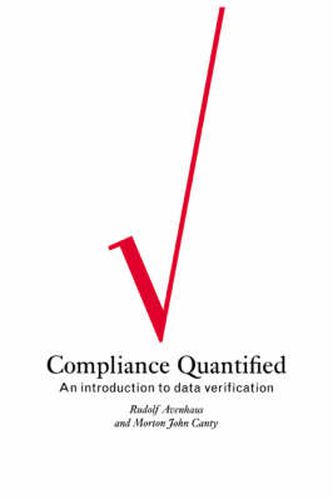Readings Newsletter
Become a Readings Member to make your shopping experience even easier.
Sign in or sign up for free!
You’re not far away from qualifying for FREE standard shipping within Australia
You’ve qualified for FREE standard shipping within Australia
The cart is loading…






International agreements, such as those governing arms control or the environment, virtually always require some degree of verification of information, in order that compliance can be established. To ensure that the verification process can be regarded as efficient, effective and impartial, it is important to have a mathematical model of it. One can be derived by applying methods from statistics and the theory of non-cooperative games, developed in part by John Nash, who received a Nobel prize in 1994 for his work. The methods permit the development of rational verification strategies, as well as such fundamental concepts as guaranteed probability of detection, timeliness of inspections and the deterrence of illegal activity. Here, the required theory is introduced gradually in the context of specific real-world examples. The only prerequisites are simple calculus and statistics, so the book should be accessible to a broad range of scientists and non-scientists, in industrial, academic or governmental environments.
$9.00 standard shipping within Australia
FREE standard shipping within Australia for orders over $100.00
Express & International shipping calculated at checkout
International agreements, such as those governing arms control or the environment, virtually always require some degree of verification of information, in order that compliance can be established. To ensure that the verification process can be regarded as efficient, effective and impartial, it is important to have a mathematical model of it. One can be derived by applying methods from statistics and the theory of non-cooperative games, developed in part by John Nash, who received a Nobel prize in 1994 for his work. The methods permit the development of rational verification strategies, as well as such fundamental concepts as guaranteed probability of detection, timeliness of inspections and the deterrence of illegal activity. Here, the required theory is introduced gradually in the context of specific real-world examples. The only prerequisites are simple calculus and statistics, so the book should be accessible to a broad range of scientists and non-scientists, in industrial, academic or governmental environments.